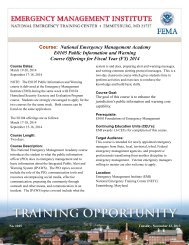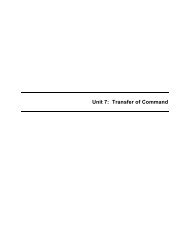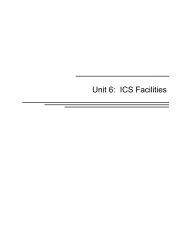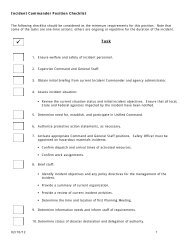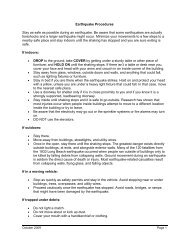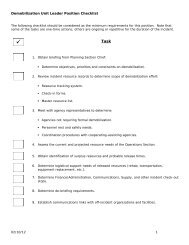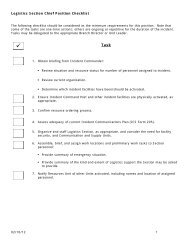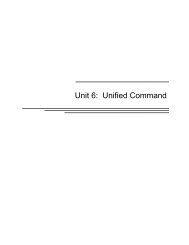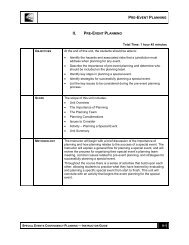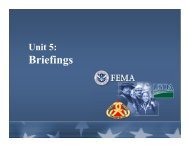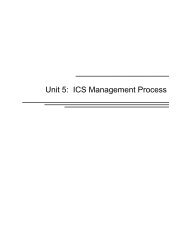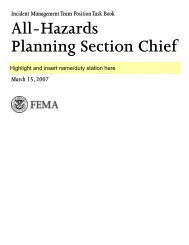Effective Communication - Emergency Management Institute ...
Effective Communication - Emergency Management Institute ...
Effective Communication - Emergency Management Institute ...
You also want an ePaper? Increase the reach of your titles
YUMPU automatically turns print PDFs into web optimized ePapers that Google loves.
UNIT 8: COURSE SUMMARY<br />
Communicating in an <strong>Emergency</strong><br />
In an emergency, people depend on information for physical and emotional<br />
comfort. To be effective, emergency communications must be timely, accurate,<br />
and clearly stated.<br />
There are considerable differences between day-to-day communications and<br />
emergency communications. Some of these differences include:<br />
<strong>Emergency</strong> information is important.<br />
Timeliness is essential.<br />
Warnings require response.<br />
Barriers to communication are common in emergencies.<br />
Messages must be consistent to elicit the desired response.<br />
When communicating in an emergency, you should always:<br />
Present the information in sequence; present the reason for the message,<br />
the supporting information, and the conclusion.<br />
Avoid jargon, codes, and acronyms.<br />
Use common names for all personnel and facilities.<br />
Omit unnecessary details.<br />
Speak in sync with other related authorities.<br />
Keep messages consistent across various media.<br />
Word the message precisely, making every word count.<br />
<strong>Effective</strong> <strong>Communication</strong> Page 8.2



